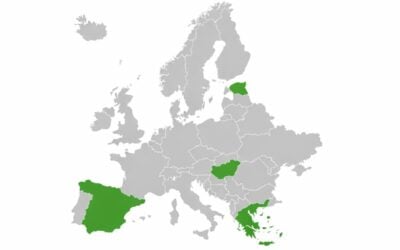
UK energy regulator Ofgem is to consider Scottish Power’s proposal to create demand side response (DSR) technology classes intended to apply new de-rating factors to energy storage used as part of DSR bids into the Capacity Market in 2019.
The utility submitted the proposal last month to create DSR technology classes with different minimum durations, and apply the extended performance testing to these newly created groups. The Capacity Market is the UK’s mechanism by which generators are paid to guarantee energy will be available in times of network stress events, particularly in winter.
Among these would be a ‘Storage DSR’ class, which transmission system operator National Grid’s electricity market reform delivery body would be obligated to consult on applying the lower de-rating factors to.
The proposal drew the ire of aggregators and other DSR providers, who claimed Scottish Power has ‘vested interests’ in pumped storage and skewing the Capacity Market towards a support mechanism for traditional generation.
Try Premium for just $1
- Full premium access for the first month at only $1
- Converts to an annual rate after 30 days unless cancelled
- Cancel anytime during the trial period
Premium Benefits
- Expert industry analysis and interviews
- Digital access to PV Tech Power journal
- Exclusive event discounts
Or get the full Premium subscription right away
Or continue reading this article for free
It was submitted as part of a call for proposals issued by Ofgem last year, which closed in October. The regulator received an “unprecedented” 112 proposals from stakeholders and delivery partners, proposing to take forward 38 of them in time for the upcoming 2018 consultation round.
Our UK sister site Clean Energy News understands that Scottish Power’s proposal was received too late to be considered this year, however Ofgem intends to consult on a decision in the next round of rule change proposals in 2019.
At the same time, Ofgem rejected E.On’s proposal to revoke the government’s decision to break down the storage technology class into multiple categories, paving the way for duration-based de-rating.
It rejected a proposal from ClientEarth that would have allowed all types of CMU (Capacity Market Unit) to bid for capacity agreements of up to at least 3, and potentially 15, delivery years.
Despite the technology neutral intentions of the Capacity Market, DSR is only able to bid for one-year contracts compared to the longest contracts available to other technologies.
Instead, a number of proposals are to be taken forward and will likely impact bidders across the energy sector angling for a contract in the next Capacity Market auctions, such as:
- An EDF proposal to amend the excess capacity volume for T-1 Auctions (currently set at 100MW) to bring it in line with the T-4 (1GW).
- RWE’s proposal to allow New Build CMUs to use a letter from a private network owner to prequalify for a T-1 Auction.
- A proposal from UK Power Reserve to allow capacity providers of distribution-connected CMUs to aggregate CMRS (central meter registration service) CMUs as part of a CMU Portfolio for the purposes of satisfactory performance days.
- Welsh Power’s proposal to allow recently commissioned, non-contracted, existing CMUs to register for secondary trading once the plant has proven its ability to deliver capacity.





